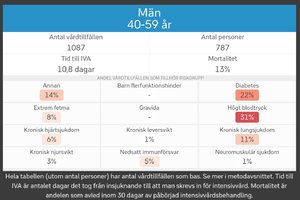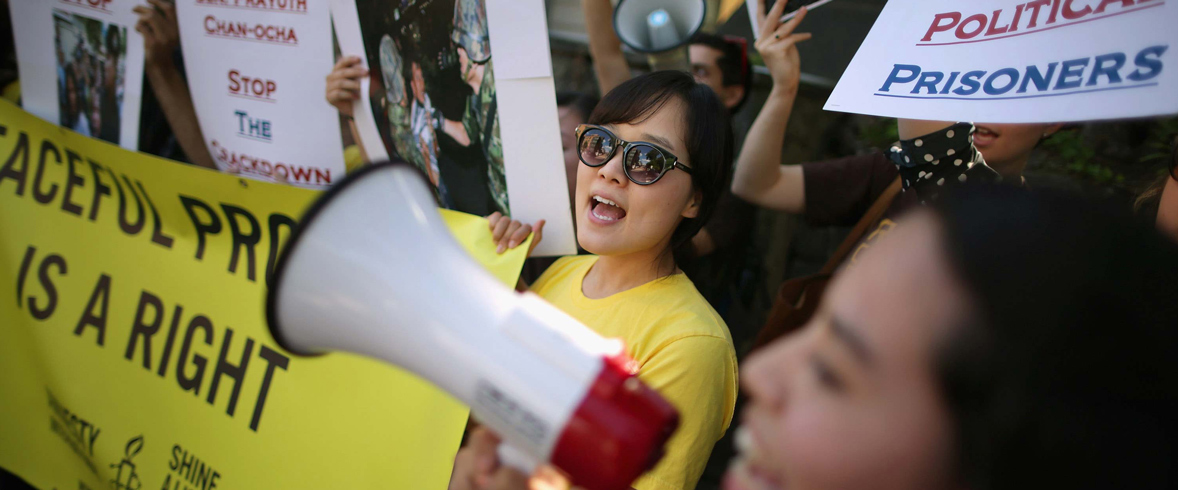Men vi får ikke gå i land.Skjønte jeg det ikke
Vi har fullt av unødvendige tiltak, for at tullinger skal kunne reise på fritidsreiser utenlands. Jada
Sist redigert:
Men vi får ikke gå i land.Skjønte jeg det ikke
Vi har fullt av unødvendige tiltak, for at tullinger skal kunne reise på fritidsreiser utenlands. Jada
Og det er med svært strenge tiltak, og vi er absolutt ikke i mål. Vi har en tøff vinter foran oss.
Dobbeltmoralen lenge leve!Men vi får ikke gå i land.Noe som er helt greit, en forblåst, regnfull liten by som Kiel er, da er det bedre meden liten skarp en ombord.
Ta deg en tur og bli en tulling du også, ( nei forresten, du kan jo ikke bli noe du erSkjønte jeg det ikke
Vi har fullt av unødvendige tiltak, for at tullinger skal kunne reise på fritidsreiser utenlands. Jada
At vi ikke går i land innebærer ingen karantene ved hjemkomst på tirsdag. Dette er ingen dobbeltmoral, det er tryggere her enn det er på Rema butikken hjemme. Og det å støtte norsk næringsliv gjør jeg gjerne. Altruist som jeg er.Dobbeltmoralen lenge leve!
Med det skal du ha;du står for det. Og tror tydeligvis at slikt er helt greit. Men å ha idiot-tiltak der det knapt finnes smitte, mener du er helt på sin plass.
Så lenge det ikke rammer meg selv, ikke sant? Jeg lurte jo lenge fælt på hvor liberalisten Terje hadde blitt av. Jeg glemte jo selvsagt at liberalister kun kjemper for å kunne gjøre det de selv vil, så er det ikke så nøye med andre.
Jada. Selvsagt.At vi ikke går i land innebærer ingen karantene ved hjemkomst på tirsdag. Dette er ingen dobbeltmoral, det er tryggere her enn det er på Rema butikken hjemme. Og det å støtte norsk næringsliv gjør jeg gjerne. Altruist som jeg er.
Er ikke bra at du ønsker en medforumist og hans familie vondt Lars Erik, det burde du holde deg for god til. For det er ganske sannsynlig at å få covid ikke er spesielt hyggelig for kroppen. Så den siste setningen din bør du trekke tilbake.Jada. Selvsagt.
Det har vært mye fullstendig på trynet i denne tråden. Men dette tar førsteplassen.
Det hadde vært en aldeles herlig sjebnens ironi om familien Terje-A hadde endt opp som smittet.
Man kan vel alltids leve i håpet.
Tull. Du er totalt avkledd og avslørt som dobbeltmoralist. Mer er det ikke å si om den saken.Er ikke bra at du ønsker en medforumist og hans familie vondt Lars Erik, det burde du holde deg for god til. For det er ganske sannsynlig at å få covid ikke er spesielt hyggelig for kroppen. Så den siste setningen din bør du trekke tilbake.
Her er det dobbeltmoralen jeg reagerer på. Fronte at like tiltak over hele landet er akkurat slik det bør være, men å sette seg på Kiel-ferga, med 700 andre er greit. Rett og slett fantastisk resonnert av ham.Det er høy smitterisiko på båt. Det er som å være på pub - bare at man er eksponert over flere døgn vs timer. Smitten på hurtigruten viste denne effekten. Når det er sagt så er tiltakene per i dag såpass strenge at det må være lov å reise så lenge det er innenfor smittevernsreglene. Jeg hadde lett reist med Kiel-fergen om jeg hadde hatt lyst - men anser risikoen for høy - ikke for meg selv men mht julefeiring med foreldre. Når det er sagt er smittefaren i Oslo kanskje på sitt aller verste på butikker på søndager der folk står i kø inne i butikkene - kun fordi KrF synes det er bedre å dø enn å ha søndagsåpne butikker i normal drift. Brenn dem på bålet og la dem smake egen medisin.
Jeg forstår hva du mener, det er rart at fergene går i disse tider men regner med at de har fått fritak grunnet arbeidsplassene. På samme tid sitter andre hjemme permitterte uten faglig hjemmel - det er faktisk helt på trynet.Her er det dobbeltmoralen jeg reagerer på. Fronte at like tiltak over hele landet er akkurat slik det bør være, men å sette seg på Kiel-ferga, med 700 andre er greit. Rett og slett fantastisk resonnert av ham.
Det er faktisk helt uinteressant hvorfor fergene går. Det er valget hans, og hans patetiske forsvar av det som utgjør dobbeltmoralen. Og ved liker-reaksjonene til enkelte andre sleivkjefter her, ser man at denne dobbeltmoralen finnes hos de mest hardnakkete moralistene for like tiltak og forsvar av regjeringens strategi også.Jeg forstår hva du mener, det er rart at fergene går i disse tider men regner med at de har fått fritak grunnet arbeidsplassene. På samme tid sitter andre hjemme permitterte uten faglig hjemmel - det er faktisk helt på trynet.
når det røyner på, må vi alle stille opp for laget og spise kake (som hun sa).Her går alle rundt med munnbind og utenfor lugarvinduet er det tåke, regn og vind. Litt surrealistisk det hele. Inntrykket så langt er at vi er et gamlehjem på tur, grått hår og spaserstokker. Bra og se at gamlingene koser seg på tur, munnbindet havner ned på halsen når vi setter oss ned for å ta en dram eller to. Vi mennesker er pokker så tilpasningsdyktige når vi må.
Jeg har aldri frontet like strenge tiltak over hele landet. Og at jeg ønsker å ta en tur under meget trygge forhold for å ha det hyggelig med min kone og barn er mitt valg, det har ingenting med dobbeltmoral og gjøre. Dette er en julegave til Junior og hans forlovede, at jeg skal smitte andre er jeg ikke spesielt bekymret for, de andre i familien er vesentlig yngre enn meg og mine foreldre er døde. Det er kun jeg som løper en bitteliten risiko her og jeg er ikke spesielt redd for å dø, har vært døden nær 2 ganger i mitt liv og det har gjort at jeg ikke frykter døden, men heller mer hvordan man avslutter livet. Men det er greit å se at du ikke angrer på dine utsagn. Da vet jeg hvor jeg har deg.Her er det dobbeltmoralen jeg reagerer på. Fronte at like tiltak over hele landet er akkurat slik det bør være, men å sette seg på Kiel-ferga, med 700 andre er greit. Rett og slett fantastisk resonnert av ham.
Jeg har nok bommet litt på en del spådommer, men det der er jo fulltendig skivebom.Full fart i Sverige...
".. en till två veckor ha lika många coronapatienter på sjukhusen som i april..."
Faktum er vel rett og slett at dette ikke er spesielt mange på verdensbasis, dvs av nesten 8 milliarder mennesker.Tallet er 1,3 millioner. Hvor mange mener du det burde ha vært? 2 mill? 5 mill?


Nå er det ikke så veldig mange av de som havner på IVA som dør - så de havner ikke i den statistikken. Bildet ditt viser vel 13% for det utvalget. Jeg skrev heller ikke at det var de eldste som dør av Corona - jeg skrev at det var de som er på slutten av livet.Mer statistikk fra Sverige, at det bare er de eldste som uansett snart skal dø som dør av Corona er dessverre feil uansett hvor mange ganger det nevnes.
Poenget er vel at det er veldig få (ekstremt få) yngre som dør av dette. Det er ingen som har sagt at det utelukkende er eldre som kan dø av coviid, men at det er såpass få i lavere aldersgrupper at risikoen må regnes å være veldig liten for dem.Mer statistikk fra Sverige, at det bare er de eldste som uansett snart skal dø som dør av Corona er dessverre feil uansett hvor mange ganger det nevnes.
Bl.a.
Corona i intensivvården och slutenvården
Följ utvecklingen av antalet patienter som vårdas på intensivvårdsavvdelningar och inom slutenvården för Covid-19.www.svt.se
Vis vedlegget 675811

Trist som faen, men det biter ikke på de som hele tiden sammenligner covid-19 dødsfall med andre sykdommer og dødsfall pga. disse. At en smittsom sykdom som covid-19 bagatelliseres er for meg underlig. Men det er mulig det er en form for beskyttelse av psyken. Ved å bagatellisere og ufarligjøre sykdommen så blir man kanskje mindre bekymret der man sitter og hører musikk. (De fleste her hører vel på musikk
New Amnesty analysis 7000 health workers have died from COVID-19
For 7000 people to die while trying to save others is a crisis on a staggering scalewww.amnesty.org
Hvem bagatelliserer...?Trist som faen, men det biter ikke på de som hele tiden sammenligner covid-19 dødsfall med andre sykdommer og dødsfall pga. disse. At en smittsom sykdom som covid-19 bagatelliseres er for meg underlig.
Det er "gode" nyheter i forhold til f.eks, spanskesyken som først og fremt rammet de yngre. Men like fordømt er det mange yngre som også blir svært dårlige av covid og noen dør også. At flere tusen leger og sykepleiere også har avgått med døden som følge av kraftig eksponering for viruset skal vi ikke glemme.Hvem bagatelliserer...?
Uansett - synes du ikke at det er en en veldig god nyhet at overdødeligheten i Sverige faktisk ikke er spesielt stor. Altså at Corona først og fremst rammer de som er helt på slutten av livet. Er ikke det veldig gode nyheter..?

Tja, ikke så uventet kanskje, jeg har også alltid stemt på det partietSvært uventet hold dette kommer fra, men her har han tatt det fullstendig på kornet.

Hvem forsvarer enkeltindividet i pandemibekjempelsens tid?
Den øredøvende aksepten for svært inngripende tiltak i folks aller nærmeste privatsfære gir grunnlag for bekymring, både for rettsstaten og folks helsetilstand.www.vg.no
Hehe; er også helt enig i alt han skriver.Tja, ikke så uventet kanskje, jeg har også alltid stemt på det partietOg er helt enig i innholdet i artikkelen.
Ja, men det er altså ingen som mener dette ikke er alvorlig.Det er "gode" nyheter i forhold til f.eks, spanskesyken som først og fremt rammet de yngre. Men like fordømt er det mange yngre som også blir svært dårlige av covid og noen dør også. At flere tusen leger og sykepleiere også har avgått med døden som følge av kraftig eksponering for viruset skal vi ikke glemme.

 no.wikipedia.org
no.wikipedia.org
Hvem er det som hevder noe slikt...? Hva er poenget med å hele tiden lage disse stråmennene..?at en slik taktikk ikke rammer andre pasienter på våre sykehus.
Er ikke pensjonist, arbeider deltid da jeg har lave utgifterHvem er det som hevder noe slikt...? Hva er poenget med å hele tiden lage disse stråmennene..?
Men smitteverntiltakene har også andre kostnader.
Forstår det slik at du er pensjonist og gift og har barn som kan besøke deg. Altså har du en trygg familie du kan være hjemme med. Likefullt så bryter du nasjonale anbefalinger fordi du har "lyst på en tur" med familien. Det nasjonale rådet er soleklar "Hold deg mest mulig hjemme, begrens sosial kontakt - vil tro de fleste skjønner at å reise på cruise ikke er innenfor.
Hva tenker du om de som er alene, som ikke har kone og barn og tilbringe isolasjonen med? De som sitter alene med hjemmkontor, hjemmeskole og som har det tøfft, mens om ikke går ut fordi de følger anbefalingene.
Man er seg selv nærmest, når man sitter på cruise og kritiserer andre for å ikke ta corona alvorlig nok.
Nå har du i ca.8-9 mnd i denne tråden kritisert andre mennesker sin oppførsel i pandimitiden. Og så kommer du med skryteinnlegg om en totalt unødvendig båttur til Kiel fra Oslo, i en tid der smitten øker? Det er nesten så man ikke tror det man leser. Men ingenting er så galt at det ikke er godt for noe, it`s....;Men det er selvfølgelig lett å sitte på sin høye hest og slenge dritt til en som er ærlig og deler litt av hva livet har å tilby.

Jeg har ikke kritisert andres oppførsel, jeg har poengtert de ulike tiltakene som innføres og konsekvensene av covid-19.Nå har du i ca.8-9 mnd i denne tråden kritisert andre mennesker sin oppførsel i pandimitiden. Og så kommer du med skryteinnlegg om en totalt unødvendig båttur til Kiel? Det er nesten som man ikke tror det man leser. Men ingenting er så galt at det ikke er godt for noe....;
Vis vedlegget 675829
Du får håpe på at dine drømmer om at jeg og min familie får corona går i oppfyllelse da Lars Erik. Ha en riktig god jul og godt nytt år.Å påpeke dobbeltmoralen og hulheten i argumentasjon man bruker for å selv gjøre som man vil, mens man kritiserer andre for ikke å ta ting på alvor, er langt fra å "slenge dritt". Det er kun å påpeke det man egentlig hele tiden har trodd; liveralister tenker kun på sin egen frihet til å gjøre som de selv vil.
Er ganske fantastisk at man faktisk prøver å forsvare seg
